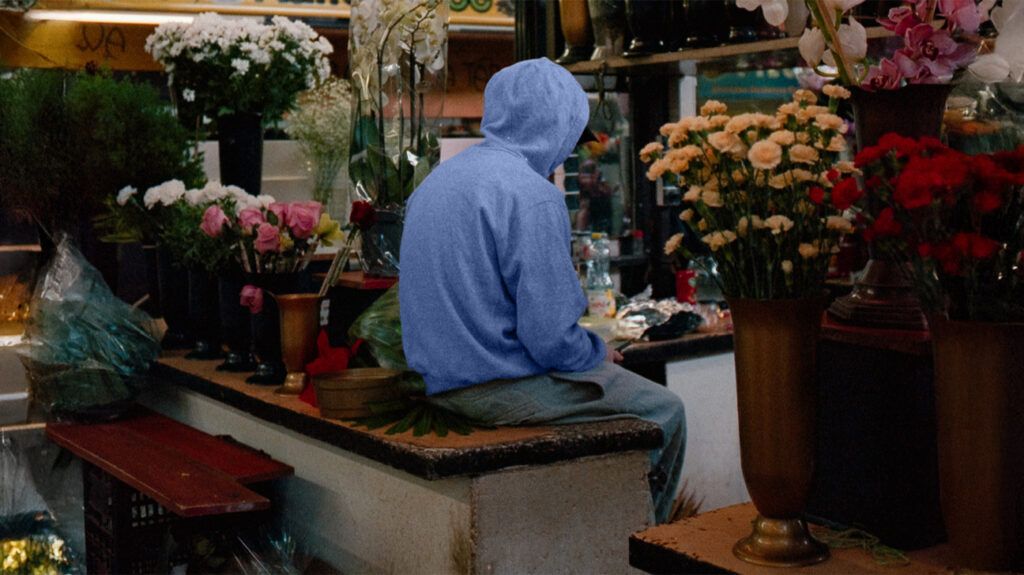Loneliness is the feeling of being socially isolated or not having social needs met. If a person is lonely, they may be more likely to experience depression. Additionally, depression may lead to feelings of loneliness.
A person may feel lonely if they do not have the level of social interaction that they need. It is also possible to feel lonely when with other people. This may be due to feeling excluded or not having a deep connection with those around.
Read on to learn more about the relationship between loneliness and depression, as well as tips for coping with loneliness and when to speak with a doctor.

Yes, there may be a link between loneliness and depression. There are many studies that have looked into the relationship between both.
Information from the
A
Additionally, information from the Crisis Text Line states that loneliness may cause feelings of sadness and hopelessness. This may develop into depression over time. Similarly, depression may cause a person to distance themselves from other people, which can lead to loneliness.
A
- Their depression hindered their social engagement, which led them to withdraw socially.
- They preferred not to talk about their depression, leading to feelings of disconnection from their peers.
- They desired a connection with others but felt unable to tolerate it.
- They experienced a self-reinforcing cycle of loneliness and depression.
Overall, research suggests that there may be a bidirectional relationship between loneliness and depression. This means that loneliness may increase the likelihood of depression and vice versa.
Depression resources
Visit our dedicated hub for more research-backed information and in-depth resources on depression.
The CDC notes that, in addition to depression, loneliness
Help is out there
If you or someone you know is in crisis and considering suicide or self-harm, please seek support:
- Call or text the 988 Lifeline at 988 or chat at 988lifeline.org. Caring counselors are available to listen and provide free and confidential support 24/7.
- Text HOME to the Crisis Text Line at 741741 to connect with a volunteer crisis counselor for free and confidential support 24/7.
- Not in the United States? Find a helpline in your country with Befrienders Worldwide.
- Call 911 or your local emergency services number if you feel safe to do so.
If you’re calling on behalf of someone else, stay with them until help arrives. You may remove weapons or substances that can cause harm if you can do so safely.
If you’re not in the same household, stay on the phone with them until help arrives.
The United Kingdom’s National Health Service (NHS) lists some of the following for dealing with loneliness:
- managing stress
- staying physically active
- eating healthily
- getting enough sleep
- pursuing enjoyable activities
- taking a class to learn a new skill
- scheduling a time to contact friends or family
- adopting a pet, if applicable
- engaging in community organizations
- volunteering at a local charity
- speaking with neighbors
- reaching out to mental health professional
If a person regularly feels socially isolated or lonely, they should speak with their doctor. A healthcare professional may be able to recommend certain treatments, such as speaking with a therapist.
A person should also speak with their doctor if they experience signs of depression. A healthcare professional may diagnose a person with depression if they experience symptoms most of the day, almost every day, for
Common signs of depression include:
- a persistent feeling of sadness, anxiousness, or emptiness
- losing interest or joy in hobbies and activities
- feeling irritable, frustrated, or restless
- fatigue
- feeling hopeless or pessimistic
- trouble concentrating, remembering, or making decisions
- feeling helpless, guilty, or worthless
- lack of energy
- trouble sleeping, oversleeping, or waking too early
- physical aches or pains, headaches, cramps, or digestive issues without physical cause
- changes in appetite or unplanned weight changes
- thoughts of death or suicide
- self-injury or attempting suicide
Other signs of depression include:
- increased anger or irritability
- becoming withdrawn or detached
- restlessness or feeling on edge
- increased participation in high risk activities
- ignoring work or responsibilities
- increased impulsivity
- withdrawing from friends and family
- increased use of alcohol or recreational drugs
- reduced libido or problems with sexual performance
There are many studies that show that there is a link between loneliness and depression. Being lonely may cause feelings of sadness or hopelessness. This may eventually develop into depression.
Additionally, depression may cause a person to withdraw from their friends and family. This may cause them to become lonely.
If a person regularly feels lonely, they should speak with their doctor. A doctor may be able to suggest possible treatments or provide information on how to combat loneliness.
A person should also speak with their doctor if they experience signs of depression. A doctor can help a person determine the right treatment for them.

